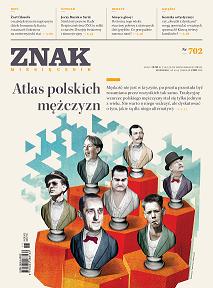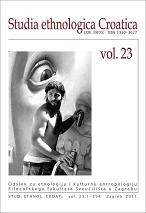
Latvia: A Reform Too Far?
Pre-election bickering is the last thing the Latvian people need right now as the economic ground gives way beneath their feet.
More...We kindly inform you that, as long as the subject affiliation of our 300.000+ articles is in progress, you might get unsufficient or no results on your third level or second level search. In this case, please broaden your search criteria.

Pre-election bickering is the last thing the Latvian people need right now as the economic ground gives way beneath their feet.
More...
Another activist and another journalist are murdered. But don’t look for widespread condemnation from the Russian public.
More...












The main concern of this article is to sketch a discursive history of the term experience. The paper commences with a cultural ecology of the contemporary usage of the concept and proceeds with a brief overview of the history of the concepts of experience and subjectivity, intricately connected with discourse on experience in humanities. Lastly, the paper offers some reflections on the academic debates that have spun the ‘web of significance’ surrounding this much contested term.
More...
The article is based on the field research the author undertook in the regions of Tibet and Nepal. According to the recent findings by Ermakov, Kværne and Samuel, as well as the author’s opinion, the name Bön carries multiple meanings. Primarily it refers to the lost religion or Ancient Bön, which was the dominant religion over a wide region of Azia before the onset of Buddhism. Secondly, there was the Yungdrung Bön, which consisted of a large number of rituals which were supposed to improve the world, ease the burden of everyday life and finally lead the follower to higher learnings which, in the end, result in the enlightenment. On the third place, there is Bön Sarma, frequently referred to as the New Bön.
More...
Using the example of the small Slovenian town of Brežice, this paper will demonstrate how various “we-groups” were established and imagined with respect to the calendrical holidays in use at that time. It attempts to analyze the role of various symbolic constructions, for example, of the town’s history of public festivities or the processes of differentiation within the local community. The author also focuses on the role of calendrical holidays in the integration of immigrants into local and specific communities. Since public festivities are presented primarily as resources that were competed for and used differently by different groups, the author also explores the possibility of the existence of a shared, and above all equal, sense of ”dirty togetherness” in the first decades of socialism.
More...
Remembrance is seen as the product of a community of people which resembles and evokes the most precious values of collective identity and communicates contingent needs of the present. In contrast to collective-memory-practices, this paper aims to explore individual practices of remembering performed by three Croatian artists. The paper explores performative projects of Marijan Crtalić – Project Target – where the socialist sculptural heritage gets to be reinterpreted by military teleologies; then Siniša Labrović, whose project restages partisan pieta vulnerability, and Igor Grubić and his project of redressing socialist sculptures. The projects point to the interconnectedness of past and present, memory and politics, collective versus individual via art. Acting as individuals, those artists have tangled the questions of how societies tend to renegotiate the meaning of art coming from the socialist past alongside the renegotiation of memory. Re-evoking socialism in their work, those three artists stand for individual interpellation of collective amnesia pointing to the process of remembrance as highly contextual practice placed in-between individual responsibility, political activism and humanism in general. By trying to re-animate or make sculptures re-personalize human figures, those art projects are meant to criticize, comment and envision the existing usage of cultural memory as well as to offer post-utopian insights on socialist and transitional utopia.
More...
Drawing on the existing documenting parallels between ethnographic fieldwork and photography, the paper discusses dilemmas connected to the relationship between the ethnographer and his research participants. The paper argues that the ideas of sensory ethnography and arts practices, as well as a reflexive approach to visual anthropology, especially collaborative and participatory methods, could prove useful in transcending boundaries between the researcher and research participants. Furthermore, the experience of taking pictures might help us towards a better understanding of ethnographic fieldwork. For this purpose, the paper offers an analysis of a number of photographs.
More...
The aim of this paper is to define the term campanilism. Hvar’s campanilism was researched through micro-territorial analysis and identification on the level of neighboring island communities. On the island of Hvar there are three circles of campanilistic rivalries and relationships and it was confirmed that a place which is seen as neighboring does not exceed a distance of more than 10 kilometers. The work presents complex systems of rivalry and animosity through the creation of stereotypes, collective nicknames and their confirmation through anecdotes, jokes and sayings. Stereotypes and mocking collective nicknames for the inhabitants of some island’s villages are divided into a few dominant thematic groups and subgroups. They additionally
More...